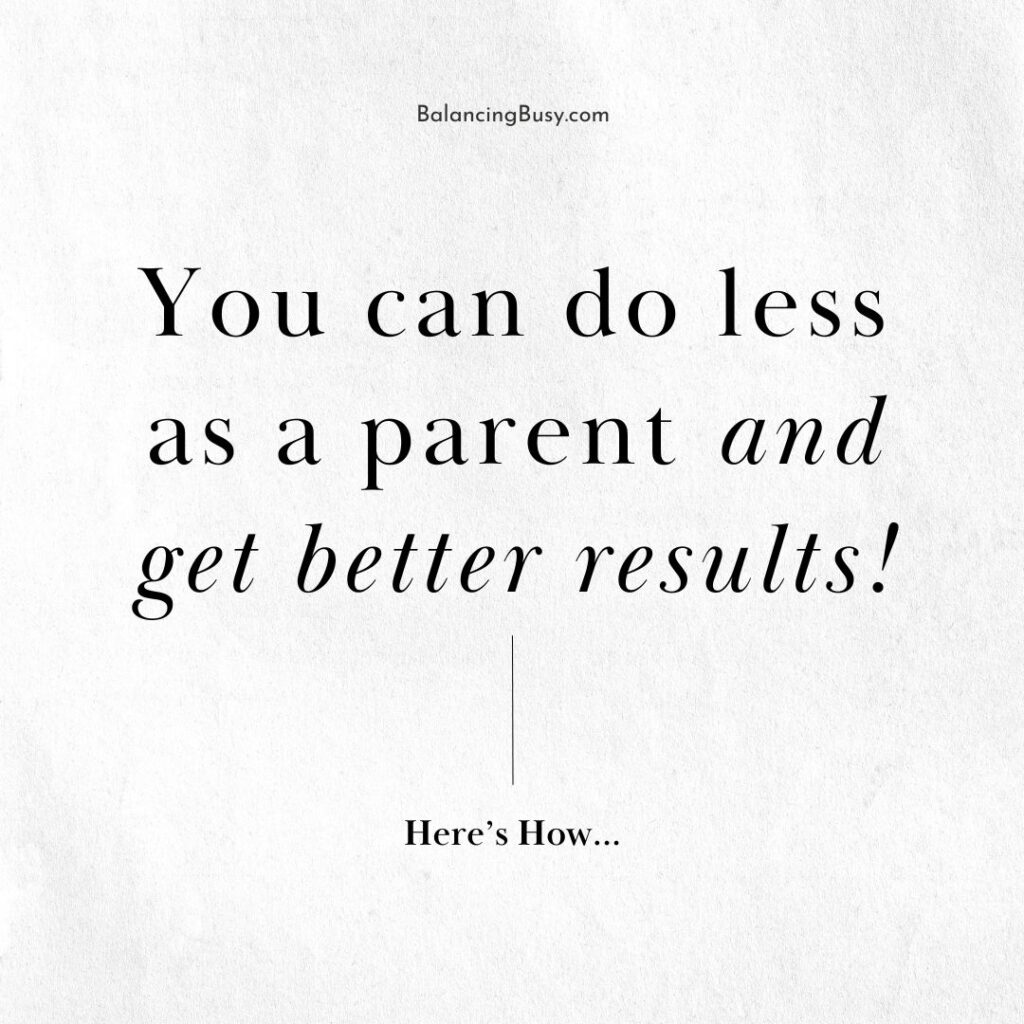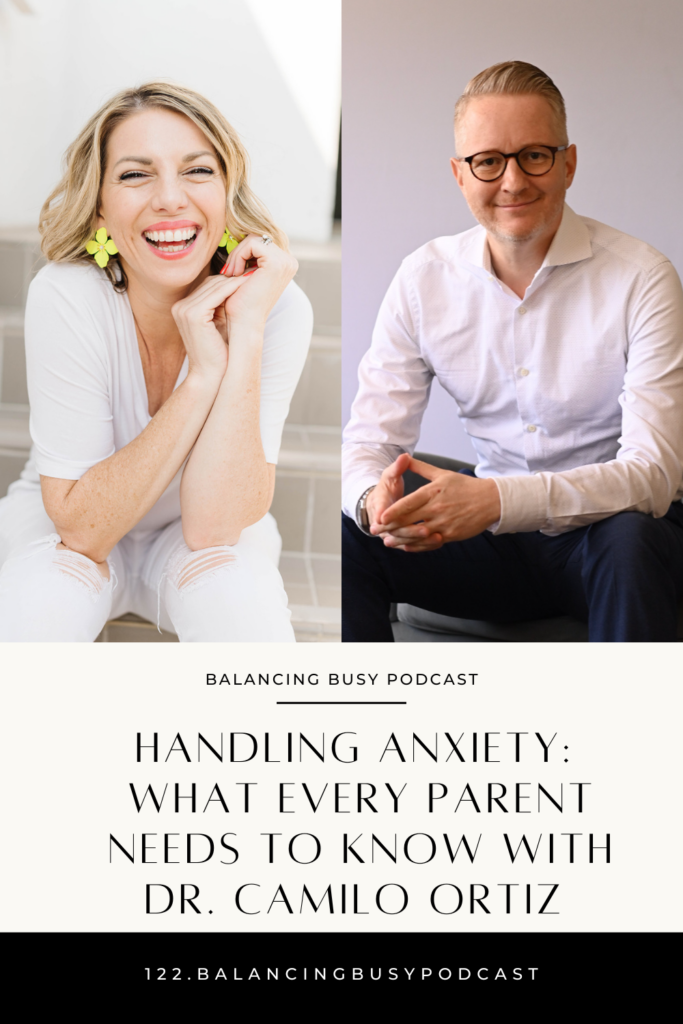Dr Camilo: I could be the best therapist in the world. I can teach your child some amazing skill on a Monday. Okay. When they are frustrated and dysregulated on a Friday, they’re not even going to remember what we talked about, let alone be able to institute a skill. I can’t get adults to do that.
Dr Camilo: So if I teach you, the parent, these skills, you’re there a lot, and you’re going to be able to coach them through these moments.
Leah: This is part two of a two part interview [00:01:00] series with Dr. Ortiz. This is my favorite interview I’ve ever done. I have not stopped talking about this episode with my girlfriends, my sisters, my husband, my kids, since I. I did this interview originally, and I’m so happy you’re hearing it. If you did not hear part one, you’re going to want to pop back one episode.
Leah: You’re definitely going to want to start there. If you did already listen to part one, then I’m going to stop talking so we can jump right back in to this conversation. I want to shift and ask on behalf of the parent who has a child suffering from anxiety right now.
Leah: And so they feel like. You know, they’re, they’re feeling like they’re behind. What can they start doing right now to help their child Through maybe the panic attack or, you know, just those very, very strong acute feelings where they get paralyzed.
Dr Camilo: So before I answered that specifically, I want to I want to address one thing, which is I often get asked, Should my child be in [00:02:00] therapy?
Leah: Okay.
Dr Camilo: And and so this is maybe a more fundamental question and generally for young kids. So let’s say age nine or less. they should not be an individual therapy. And for most problems, parent focused approaches are more effective. And the way that I explain this to parents when they call me, because I get lots of calls, can I, my, I, I’ve gotten calls, can my two year old come in and be an individual therapy?
Dr Camilo: Um, and so what I say to parents is, I could be the best therapist in the world. I can teach your child some amazing skill on a Monday. Okay. When they are frustrated and dysregulated on a Friday, they’re not even going to remember what we talked about, let alone be able to institute a skill. I can’t get adults to do that.
Dr Camilo: So if I teach you, the parent, these skills, you’re there a lot, and you’re going to be able to coach them through these moments. So that’s just one thing. Now, let’s say that you’re, you’re [00:03:00] taking that approach and your child is very anxious. So. Ordinarily, the first impulse of most parents is to accommodate the anxiety, so to do whatever you can to make your child feel better, because you love them and you care about them.
Dr Camilo: It makes perfect sense. Now, again, when you accommodate and you step in, this is kicking the can down the road and creating a bigger problem. So the first thing, and maybe this is obvious, but don’t tell a kid to calm down or it’s not a big deal. For them, it is a big deal in that moment. We’ve all been told that something’s not a big deal that has never once made someone go.
Dr Camilo: Oh, you know, you’re right. Yeah, exactly. So instead of that, we suggest just a simple reflection. So you’re anxious about that test tomorrow. Just like that. Just a reflection. Just a couple of words. And at that point, the child will usually say, Yeah, I’m worried I’m gonna fail or something like that. And then we I asked parents to pause.
Dr Camilo: [00:04:00] So let there be some time for that reflection to kick in. And then at that point, before you jump in with a million solutions, You can again reflect. Yeah, it can be scary to have a math test that you’re not feeling so confident about. So just a second reflection. Now, at that point, you can you can sort of ask your child, What do you think you can do about it?
Dr Camilo: And and maybe they’ll say, I don’t know. But often kids have some good ideas and instead of, again, you giving them all the ideas, you are making them work a little bit. So, reflection, pause, inquire as to what they think they can do is often a much more effective approach than what parents typically do, which is invalidate, minimize, um, use sarcasm.
Dr Camilo: And then get upset at their child and and you know, we’ve all been there. I’ve been there. I’m not suggesting at all that I’m perfect. I’ve made these mistakes a million times. [00:05:00] But I also know that if you can reflect and pause and inquire, that’s going to be in general, a much more effective approach.
Leah: Oh, that’s powerful.
Leah: And I I’m so excited, you know, for all of us to be applying this and trying to do this now. Um, What, what happens when the anxiety is, is like at the level of panic attack and those, that kind of place where maybe they, they can’t even catch their breath, let alone try to verbalize what’s happening. What’s the best thing for a parent to do in that moment?
Dr Camilo: So, you know, what a smart. Mentor of mine once told me that anxiety is not the problem, it’s avoidance that is the problem. So, the emotion of anxiety is not dangerous, it’s certainly uncomfortable, but we don’t always need to do anything about a big emotion. If you’re noticing that your child is avoiding things, like [00:06:00] play dates, or even school, or Playing on a sports team, that’s when it can start to become, you know, impinging on their functioning and, and might be worthy.
Dr Camilo: If a child is having a full blown panic attack next to you, there’s actually not anything that, that typically we can do to shorten that panic attack. The fight flight response is sort of like this fuse that has to burn itself out. So being sort of nonchalant and calm about it and reflecting that it’s very uncomfortable, but it’s not dangerous, is often all that a child needs.
Dr Camilo: The fight flight response is actually made to protect us. You know, if a bear jumps out from behind a tree, We want that fight flight response because it’ll make us run away faster, or if we have to, fight the bear. It’s just, it’s sort of like a car alarm that is going off when you don’t need it to, so we think of it as a false alarm.
Dr Camilo: And so we can also say that, you know, your body’s having a big [00:07:00] reaction because it’s trying to protect you from something. We don’t need protection, we’re both safe right now, so let’s just wait it out, is typically what you want to do as a parent. Now, if this is happening a lot, then it can translate from a panic attack to panic disorder.
Dr Camilo: And that’s when we are having frequent panic attacks, and we are also having lots of avoidance. Then exposure therapy with a trained professional is an effective treatment. And that would mean slowly exposing the child to the things that trigger the panic.
Leah: Okay. Oh, this is so good. Okay. I want to kind of circle.
Leah: So we, we sort of talked for a moment just now about like the darker side of anxiety in like panic attacks. And when there truly is maybe an anxiety disorder, I, I personally feel that the word anxiety is thrown around a bit too loosely. And it just seems that everyone uses, even if they’re not saying they, that they have anxiety, have anxiety, they say things like that [00:08:00] makes me so anxious.
Leah: Oh, I was so, I had so much anxiety over that. Right. And I almost feel that it becomes this self fulfilling prophecy. But what I want to get to is that we need to reframe the way we look at, um, that kind of anxiety. So I’m not talking about like clinical. Anxiety, but I’m talking about this idea of like anything uncomfortable gets related to I’m anxious or I’m feeling I’m having anxiety over this and I love how you kind of talked about how anxiety can be an advantage.
Leah: So will you frame that for us so that we can a take it for ourselves, but be then help our kids with that same concept.
Dr Camilo: So two things come to mind. One is that when, when we’re teaching, uh, statistics to students, we, we, there’s this kind of relationship called a curvilinear relationship. And we always use anxiety and test performance as an example of it.
Dr Camilo: So imagine a little chart. So here you have. Very [00:09:00] little anxiety. You tend to not do so well on tests because you don’t care about them. We actually want kind of like a moderate level of anxiety. That is the highest kind of scores we have. But when we are crippled with anxiety, it again will reduce our performance.
Dr Camilo: So this, we have to be a little more nuanced about it, that it’s not just anxiety bad. It’s, if it’s too much, we’re or if it’s in the wrong situation or it interferes with doing things, then that’s what we consider problematic. But in and of itself, anxiety is a normal human emotion that we need or we would tend to do really dumb stuff that would get us killed.
Dr Camilo: So that’s, that’s one thing that comes to mind. The other thing is a more practical, uh, approach, which is words are powerful. And so people will, will use phrases like, okay. I was freaking out or I was having a meltdown. And one of the skills that good therapists use is to be descriptive about things. So, when [00:10:00] you are freaking out, tell me what was going on actually.
Dr Camilo: Oh, uh, I was breathing, uh, quickly. My heart was racing. I felt flush. So, we’re taking out sort of judgmental words from the description of what is happening. And once you do that, then it actually is less scary to just describe something. So that’s always a good approach with kids with yourself. Try to avoid words that are inflammatory and be descriptive about what you’re actually feeling.
Dr Camilo: And then, then it kind of clarifies things that, oh, these are uncomfortable sensations. But, there’s nothing wrong with them, they’re not dangerous, I can tolerate being uncomfortable. It sort of just puts things on a different plane when you’re descriptive with your language.
Leah: I love that. And you just completely validated something I was saying to my kids earlier, so extra thank you for that.
Leah: I was talking to one of my older kids, and I was like, you need to be careful about the words that you’re using. You know, just kind of flippantly, she was like, I [00:11:00] hate, and I was like, you don’t actually hate. Let’s not use such a strong word. You know, I think. Drama for the sake of drama is very in right now, right?
Leah: Like everyone has, is identified by their thing that’s wrong with them. And, you know, especially among youth and kind of helping them realize, is that really who you are? Like that’s the identity you want to hold on to and, and trying to help them work through that maybe.
Dr Camilo: Well, we talk a lot about the words that people use to describe themselves in cognitive behavioral therapy.
Dr Camilo: And so, uh, those words really affect behavior. So let’s say you’re kind of a little socially anxious. And you say you to describe yourself. Um, you know, I’m I’m really shy. So that puts you in sort of this framework. And when you think about doing difficult things, if you label yourself as shy, you’re That’s going to make it more difficult to [00:12:00] do those things.
Dr Camilo: So we again tried to be descriptive. I, uh, I noticed that my heart rate goes up a little bit when I talk to a new person. That’s very different than I’m a shy person. Because that implies that you can talk to a new person and you’ll have this uncomfortable feeling of your heart rate going a little bit higher than normal, but it doesn’t mean you can’t do that thing.
Dr Camilo: And there’s lots of ways that people label themselves and others. There’s a whole sort of, you know, victimhood way that is, is, is really common these days that, that again, I don’t think is healthy for, for, for people.
Leah: Okay, so that, I love that you said that because that’s the last thing I want to touch on with you.
Leah: Is this victim mentality, right? This idea that everything is happening to me and therefore, A, it’s not my fault, but the problem also is I also then don’t have power, right? [00:13:00] Because if it’s all happening to me, then I don’t have control. And yet when we take, uh, I like to say radical responsibility or when we just And it doesn’t mean that there aren’t real situations where someone is a victim.
Leah: That, of course. But this idea that, Oh my gosh, because of this, I’ll just use, Because of this idiot driver, I’m running late. Or maybe it’s because I should have left ten minutes earlier. Right? Like, maybe that’s the real reason. And when I take responsibility, I take my power back. Because now next time, if I just leave ten minutes earlier, This stress is now gone, right?
Leah: So, um, I, my podcast listeners have heard me vent and get on my soapbox about, like, this victim mentality thing. But I would love to hear from you, your perspective on this.
Dr Camilo: Well, you use the word control and that is related to the way that psychologists have been studying this for a very long time. And the concept that that we use is [00:14:00] locus of control.
Dr Camilo: And so that just means where do you think the control over the outcomes of your life lie? What? So on the one hand, we have an internal locus of control, which means generally that we think we are responsible and in charge of our own outcomes. And on the other hand, we have an external locus of control that other people or the environment or the world is responsible for how we end up.
Dr Camilo: And it’s been a very reliable finding for decades that when people have an internal locus of control, they are more successful in life because it’s just very easy to give up when you think I mean, why would you try if you thought that you had no say in what your outcomes are? And so we can model that for our kids.
Dr Camilo: We can talk to them about it. We can ask ourselves where we think the locus of control is. Um, so yeah, couldn’t agree more. You know, the victimhood mentality that we see is an [00:15:00] extreme version of an external locus of control.
Leah: It makes me think of, um, Angela Duckworth’s work, right? And like grit and recognizing that, you know, who, who we give that control to.
Leah: And, and I guess like a growth mindset versus a fixed mindset, right? If, if I believe I have the control, then I can create any life or experience that I want. It won’t always go perfectly. There’s going to be bumps along the way, but I can create that. And if I believe that everything’s happening to me.
Leah: And I don’t have much control. Well, then I also don’t have much control in where my life goes and what happens. And I think this is something that has to start with us as parents, right? Like, we have to decide this for ourselves that this is true for us, because how can we possibly instill it in our Children?
Leah: If what we’re modeling is that everything keeps happening to us [00:16:00] against us, right? Like, I think this also stems to like a complaining mentality, right? How much we. Um, just vocalize everything that’s going wrong.
Dr Camilo: So, I think the fundamental truth of cognitive behavioral therapy is this idea that it’s not the things that actually happen to us that shape the consequences, that shape our well being.
Dr Camilo: It is how we think about the things that happen to us. So an example that I give to my clients is, let’s imagine you’re on a train and you’re seated and it’s really crowded and someone steps on your brand new white sneakers. All right. So that’s what we call the activating event. It’s the way we have an ABC kind of paradigm now.
Dr Camilo: And I asked my clients, what would be the thoughts that would go through your mind if that happened? Well, he he’s careless. He did it on purpose. And then I say, Well, imagine that you look up and you see that the person is blind, right? So You still got your foot stepped on. The thing that [00:17:00] happened to you did not change.
Dr Camilo: What would be the consequences if you thought that he was blind? Well, I wouldn’t be upset at all. I would give him my seat. And so that’s, there’s a million of those where we have the same thing happening to multiple people, but the outcomes are totally different. And it’s dependent on how the people interpret what happened to them and, and this locus of control or the victimhood mentality is one aspect of that.
Dr Camilo: But I always ask my clients and people that I talk with, let’s get away from, uh, linking what is happening to us with the outcomes because there’s a thing in between that we have a lot of control over, which is how we interpret what happens to us.
Leah: So how do we as the adult start doing that more and more?
Leah: Like, how do we, you know, it’s one thing to hear it, right? They’re hearing this and, and they’re having an aha moment where they’re like, yes, yeah, that makes sense. But then we’re in real life and someone steps on our shoe and all of a sudden, you know, all the thoughts that are [00:18:00] angry and frustrated and, and how careless they were flood us or whatever it might be.
Leah: So, So how do we, how do we get ourselves to remember this and to apply it and to practice it?
Dr Camilo: So there’s not an easy way, but one way that we talk about a lot in cognitive therapy is having this. There are sort of two ways to look at the world. And what is, one is this rigid dogmatic way, and one is a preferential way.
Dr Camilo: So, generally when people are preferential, they tend to get upset far less. So if someone steps on your foot, the, if the thought is, he shouldn’t have done that, I can’t stand my shoes not being perfectly white, we’re gonna get really upset. If our thought is, I I don’t love having someone step on my shoe.
Dr Camilo: I prefer that they be white. We’re still going to be annoyed, but it’s not going to ruin our day. So this is kind of like one of the first things that we talk about in cognitive behavioral therapy is let’s notice when we’re being rigid or [00:19:00] dogmatic or black and white in our thinking and see if there’s a preferential version of that.
Dr Camilo: takes a lot of practice. You have to do this over and over and over because we are not wired to think preferentially. And if you do it enough, you can actually get to, it’s almost like a superpower that things don’t have to go perfectly. We can prefer things. We’re not saying we have no preferences, but when we prefer and things don’t turn out that way, we don’t, it doesn’t ruin our day.
Dr Camilo: So that word preferential is infuses CBT and we talk about it a lot.
Leah: Oh, that idea that when things don’t go wrong, it doesn’t ruin our day. I think if we can first for ourselves, And I’m thinking, so I’m always trying to think, okay, what’s a simple system I can put in place to do this. And so I’m thinking I could literally put alarms on my phone that are silent.
Leah: I do this all the time to bring my intention back that go off throughout the day that asks myself, [00:20:00] am I, am I being preferential, right? Or whatever it could be that would trigger me to remember so that I actually implement this and, and it doesn’t, you know, a great idea that then disappears. You know, because I have
Dr Camilo: one phrase that I that I often keep in mind, which I think is pretty simple.
Dr Camilo: I do not need what I want. I do not need what I want. When I feel myself getting upset, I remind myself, I do not need what I want. I want what I want. I do not need it. And that totally calms me down.
Leah: Oh, I love that. Okay, so that could be, that could be the little alarm. And then as we learn that, and as that settles in on us, we’re going to be able to then help our kids so much more because, you know, I’m thinking, I’m like, I don’t think there’s a parent out there who doesn’t want their child to have that skill, the skill to be able to say when things don’t, when things go wrong, I’m not unraveled, right?
Leah: It doesn’t spiral me. It doesn’t mean that it’s the worst day [00:21:00] ever. And, and the idea of being able to implement, I mean, there’s been so many things, but even that alone, if you took just that one and then you stack a couple more of these ideas that you shared, I mean, it would be so powerful. This has been.
Leah: Amazing. Thank you so much. It
Dr Camilo: was so fun to talk to you.
Leah: Oh, it’s been amazing. Okay, can you tell everybody, I will have links, um, in the show notes, but how can people find you? What would be the best way? So,
Dr Camilo: my website is just the letters DR, Ortiz, C A M I L O O R T I Z. Or they can just follow me on, uh, X or Twitter, and it’s, uh, Dr.
Dr Camilo: Camilo Ortiz. Same thing, D R, Camilo Ortiz.
Leah: Perfect. Okay. Thank you so much for being on this episode. You guys, we’ll have another one next week, and there’s been so much juicy, tidbits in this one. So this is definitely a show notes episode. We’ll have it linked for you.
[00:22:00]
Hide Transcript






you said: